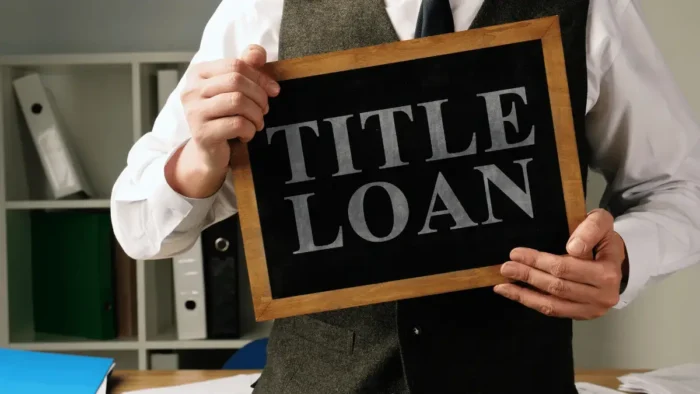If you are looking for capital for your small business, debt financing will give you the boost you need to get it off the ground.
A business loan can provide startups funds to run and expand, with a promise to repay said borrowed amount, including interest. With banks and alternative lenders offering loans for businesses, there is no shortage of financing options. You just need to identify which option is better for you or you will end up in a worse state financially than before.
A term loan and a line of credit are two financing options suitable for small business owners. These two types of loans may have a lot in common, but they are actually very different financial products. Whether you decide to take out a business loan or line of credit, you need to thoroughly understand each option’s pros and cons. It helps to look into and evaluate their characteristics and purposes to determine which fits your unique circumstance.
How Do Small Business Loans Work?
A term loan lets you borrow a fixed lump sum of money, repayable over a pre-determined period of time. This can range from one to 20 years, depending on the terms set by your lender. With term loans, the borrower is required to repay the loan immediately. The interest rate and closing cost are also higher than other financing options. Typically, lenders prefer collateralized loans, where they take a valuable asset or property as collateral. There are also options, however, for unsecured loans with no collateral.
Small businesses can take out term loans from banks and credit unions, as well as online lenders. If you are having trouble seeking a direct lender, you may opt to tap into the services of a loan aggregator. If you live in Canada, check this site out. As with any form of credit, it is important that you consider the interest rates and repayment terms before applying for a term loan. During the application process for a small business loan or grant, your lender may require several financial and legal documents, which may include your tax details, business license, and certifications.
Repayment terms for term loans generally depend on the borrowed sum and the type of interest rate. For loans with collateral, like a house, the interest rate is more reasonable than with an unsecured loan. Your lender may impose a monthly payment, or a lump sum depending on your agreement. When applying, be sure to check for any additional charges you may have missed the first time. Applications for loan terms are typically easier for businesses that have been around longer since lenders look into your success track record.

What Is a Credit Line and How Does It Work?
A line of credit is a bank loan that allows you to have access to specific amounts of cash, just like a credit card. It is often referred to as revolving, since borrowers can tap into it again and again, but only up to a certain, approved-upon limit. Unless you have used the money, you do not have to make payments nor be charged with interest. You can borrow small or bigger amounts on an as-needed basis until you reach the maximum borrowing limit. Your credit line can last up to 20 years. Like a term loan, it can be secured or unsecured.
Credit lines are commonly used to help finance ongoing operating expenses. Borrowers also consider them as safety nets for when they need immediate cash to cover unanticipated payments. Repayment for a line of credit starts once the draw period ends. Late and missed payments incur a substantial increase in interest rates. The application is the same as with other loans. Your lender will review your request and approve it depending on the set criteria. Your borrowing limits will be based on your credit scores and borrowing history, available income and assets/collateral.
Approval for unsecured credit lines, or those without collateral, is more difficult. Because banks are taking a greater risk, they also have higher interest rates. To win an unsecured line of credit, you have to prove that your business has good cash flow. Banks also reserve the right to cancel credit lines, secured and unsecured. They may also lower your borrowing limit and raise interest rates at will. This is an important point for those who are still weighing options between a business loan vs line of credit.

Small Business Loan vs. Line Of Credit: Which Is for You?
Whether you choose a business loan or line of credit, it is your responsibility as a borrower to do research and weigh down the pros and cons. Term loans work best for long-term investments as it gives you the ability to finance expenditures for long periods of time. Meanwhile, credit lines suit short-term financing needs, such as payroll and temporary cash flow shortages. While a line of credit can be renewed every one to two years, a term loan is fixed for the amortization period specified in your contract.
Once you have used up the funds in your small business loan or grant, you will have to reapply for a new one. With credit lines, the money is reusable until you reach the credit limit. You can also borrow only what you need. In terms of interest rates, a term loan is typically higher than a credit line. Borrowers pay a fixed rate, unlike credit lines where your interest rate increases once you missed payments or overshot the cash limit. Term loans are also used for a specific purpose, while credit lines are more versatile.
In choosing between small business loans vs. line of credit, your decision should always depend on your business goals. You must also consider your tolerance for loan fees and how much you can handle paying every month. Are your cash needs for the long-term or short-term? Do you prefer a more flexible or fixed plan where payments and interest remain the same throughout? Understanding the similarities and differences between a business loan and line of credit will help you make the right choice for your business.
📖 Read more similar articles





